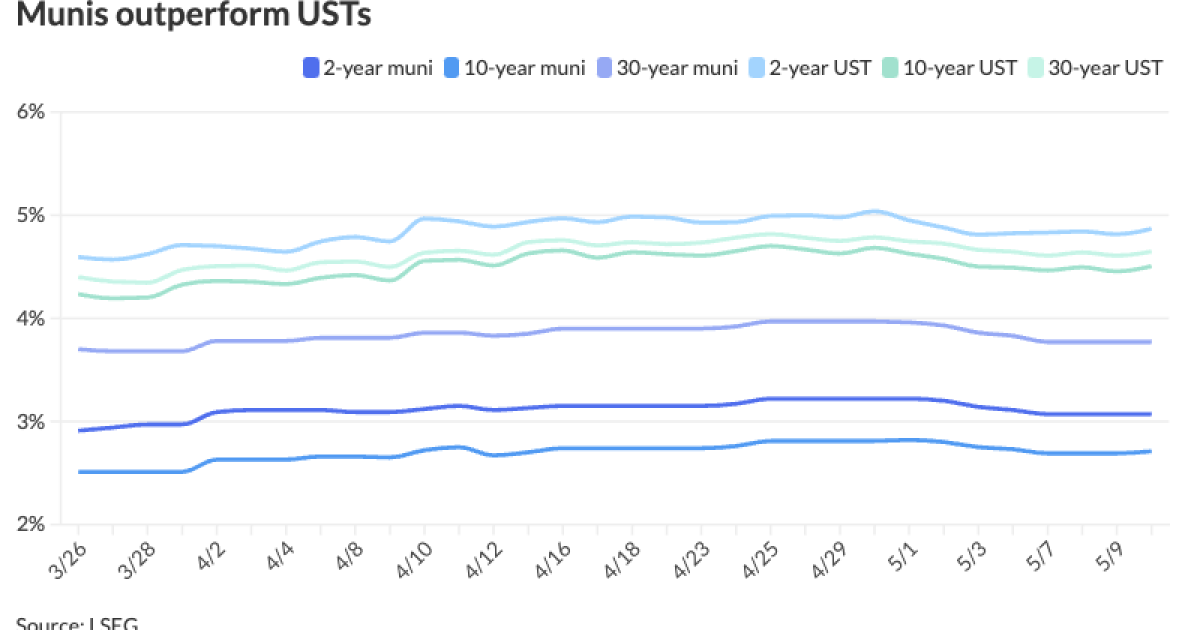Bond subsidies, financial disclosure in play as Congress debates big bills
3 min read
As the 117th Congress heads into its final weeks, negotiations are heating up over major bills that may affect municipal market priorities like bond subsidies, new financial disclosure requirements and disaster funding.
Government funding under the current continuing resolution is set to run out Dec. 16, and lawmakers are haggling over terms of a fresh funding vehicle totaling around $1.65 trillion. The measure could take the form of a full year omnibus appropriations bill, a short-term extension until Dec. 23 or a full-year stopgap measure.
As part of the debate, the muni market is looking for Congress to enact a permanent waiver of the pay-as-you-go, or PAYGO, budget rule related to the American Rescue Plan Act. Failure to waive the PAYGO rule would risk having subsidies on direct-pay bonds like Build America Bonds denied.
Issuers don’t want another temporary extension of the PAYGO waiver, said Emily Brock, federal liaison for the Government Finance Officers Association.
“We’re ready for the real deal,” Brock said. “We’re talking with leadership right now to let them know about our wish list.”
The waiver could be attached to an omnibus spending bill or the defense reauthorization act, and has to start in the House Budget Committee.
That committee is currently chaired by Rep. John Yarmuth, D-Ky.
On Tuesday, House Democrats tapped Pennsylvania Rep. Brendan Boyle as new ranking budget committee member starting next year when they are in the minority.
Though his power will be muted by Republican control of the House, Boyle is expected to continue to champion his legislation to end the chronic debt ceiling debate by giving the Treasury secretary or president the authority to lift the ceiling.
The debt ceiling is important to the muni market because impasses usually mean Treasury halts sales of state and local government securities, which are used by state and local governments and other entities that issue tax-exempt municipal bonds.
Republicans have yet to name their pick for budget committee chair, though Missouri Rep. Jason Smith may seek the position if he loses his bid for the top spot on the House Ways and Means committee.
Another key muni market concern is whether the National Defense Authorization Act of 2023 will retain a House-passed amendment called the Financial Disclosure Transparency Act, which mandates data disclosure standards for issuers.
The text of the conference committee version of the NDAA was expected to be released last Friday, but it’s been held up by last minute negotiations over dozens of amendments attached to the “Christmas tree bill.” Points of dispute include Sen. Joe Manchin’s energy infrastructure permits and cannabis banking rules.
Meanwhile, the White House has requested Congress appropriate an additional $37.3 billion for disaster support for a handful of states and communities including New Mexico, Florida and Puerto Rico.
The bulk of the money, $29.6 billion, would go for recovery from Hurricanes Ian and Fiona. That includes $3 billion for grants to provide solar and storage systems to low-income households in Puerto Rico and $15 billion through FEMA.
Another $7.7 billion would go to other communities that suffered disasters last year, including $600 million for the water crisis in Jackson, Mississippi.
Budget negotiations are being led by Sen. Chuck Schumer, Senate Appropriations Committee Chair Patrick Leahy, Senate Minority Leader Mitch McConnell, Senate Appropriations Ranking Member Richard Shelby, and, on the House side, Speaker Nancy Pelosi and House Appropriations Committee Chair Rosa DeLauro.
Some Republicans, including Rep. Kevin McCarthy, R-Calif., who is vying to become the speaker of the House next year, asked Sen. Mitch McConnell to hold off until January to produce an omnibus bill to give Republicans more control.







